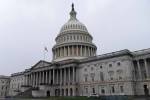Editorial: From on high
The short-handed U.S. Supreme Court, on the verge of wrapping up its current term, issued two major rulings on Thursday, a mixed bag for those on both sides of the political divide.
In an affirmative action case out of Texas, the justices ruled 4-3 that the University of Texas may use race during the admissions process in order to promote campus diversity.
In a 51-page dissent, Justice Samuel Alito called the school’s approach “affirmative action gone berserk based on offensive and unsupported stereotypes.” Justice Clarence Thomas also dissented, arguing that the Constitution outlaws any use of race in college admissions.
A noble concept now completely turned on its head.
Notably, Justice Anthony Kennedy wrote the majority opinion, which embraces the vacuous progressive worship of diversity as a means to all ends. “A university is in large part defined by those intangible qualities which are incapable of objective measurement but which make for greatness,” Justice Kennedy wrote.
He did allow, however, that “it remains an enduring challenge to our Nation’s education system to reconcile the pursuit of diversity with the constitutional promise of equal treatment and dignity.” Really? How so after Justice Kennedy and his liberal cohorts have just held that the former trumps the latter?
In another matter, the high court deadlocked on the Obama administration’s efforts to exempt millions of illegal immigrants from deportation. The 4-4 tie means a lower court ruling chastising the president for overstepping his authority will remain in place, but set no national precedent.
The debate had nothing to do with immigration and everything to do with the separation of powers, a vital check on tyranny intended to limit the concentration of government authority that characterizes most dictatorships.
The non-decision represents another judicial rebuke to a president who has made clear that he recognizes few constitutional constraints when it comes to advancing his agenda. Ironically, it came just a day after a federal judge in Wyoming ruled that a White House attempt to limit fracking on federal lands was put in place absent the required congressional authorization.
No doubt, the presence of the late Antonin Scalia might have led to different results in both cases, as he likely would have provided the fifth vote to kill the president’s immigration policy while perhaps tempering the majority’s enthusiasm for racial quotas in university admissions.
Regardless of where one stands on either issue, these decisions again highlight how the upcoming presidential election is about much more than just the executive branch.























